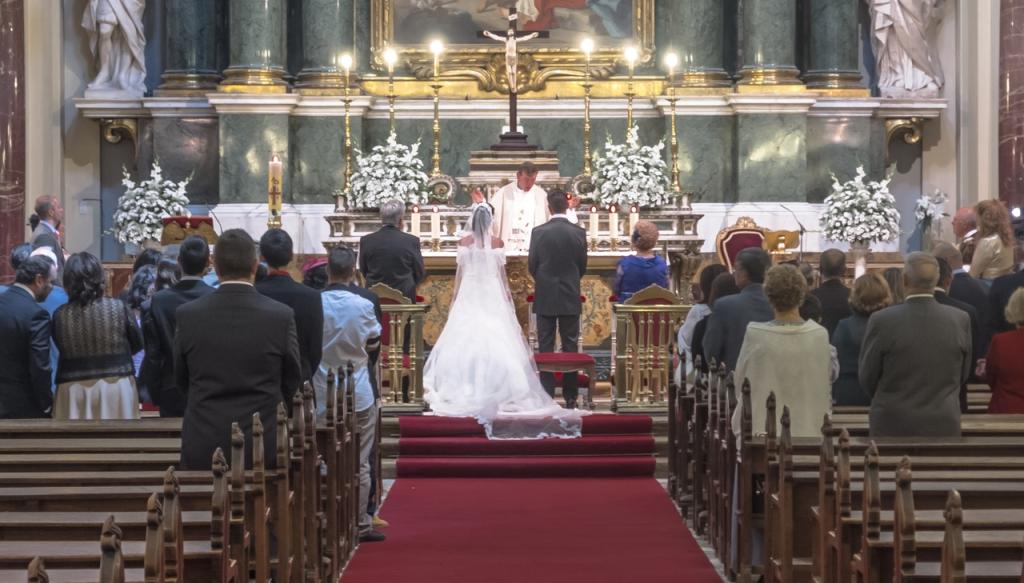
Having a formal wedding ceremony, complete with as many family and friends in attendance as possible, is a big predictor of a happy marriage.
That was one of the findings in the study we blogged about on Valentine’s Day by University of Virginia researchers Galena K. Rhoades and Scott M. Stanley entitled Before “I Do”: What Do Premarital Experiences Have to Do with Marital Quality Among Today’s Young Adults?
In fact, they found a rather remarkable correlation: The more people who attend your wedding, the more happy your marriage is likely to be!
First of all, having a formal wedding in the first place significantly increases the likelihood of having a happy marriage. The researchers quantified “marital quality” by factoring together self-reports of satisfaction, happiness, divorce, and thoughts of divorce. They defined a “high quality” marriage as scoring in the top 40% of all respondents. They found that 41% of couples that had a formal wedding ceremony reported being in that “high quality” echelon. Whereas only 28% of couples who were content with a Justice of the Peace or a Vegas chapel rated their marriages so highly.
And then the data got really surprising.
We found that among our participants, having more guests at their wedding was associated with higher marital quality. To illustrate this association, we divided the sample into those who had weddings with 50 or fewer attendees, 51 to 149 attendees, or 150 or more attendees. . . .Of those with 50 or fewer attendees, 31 percent had marital quality in the top 40 percent; of those who had 51 to 149 attendees, 37 percent had marital quality in the top 40 percent; and of those who had 150 or more attendees, 47 percent had marital quality in the top 40 percent of the sample.
But big weddings are expensive! Wouldn’t the explanation imply that couples going that route and inviting so many guests are more affluent than usual, and might not having lots of money make for more secure, contented marriages? One might think so, but the researchers say that they controlled for income–as well as education, race, ethnicity, and religion–and came up with the same results.
Why is this? The researchers speculate:
The finding may also have to do with the act of having a public ceremony, which symbolizes a clear decision to commit to one’s marriage. As we discussed earlier, making a clear, deliberate decision to commit to one option and reject alternative options strengthens a person’s tendency to follow through on the commitment. Wedding ceremonies ritualize the foundation of commitment. Making a clear, deliberate decision to commit to one option and reject alternative options strengthens a person’s tendency to follow through on the commitment.
Small or large, wedding ceremonies also reflect and enhance the community context of marriages. Weddings, after all, are public celebrations involving family, close friends, and often a wider network of people around a couple. Emile Durkheim, the celebrated sociologist, is famous for arguing that community, and the rituals associated with collective life, give meaning, purpose, and stability to social life. The association between having a wedding and having a stronger, happier marriage could reflect two dynamics in this context. First, weddings may foster support for the new marriage from within a couple’s network of friends and family. Second, those who hold a formal wedding are likely to have stronger social networks in the first place.
Like, maybe, belonging to a church?
Photo from pxhere, CC0, Public domain














